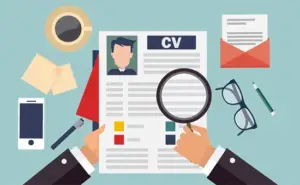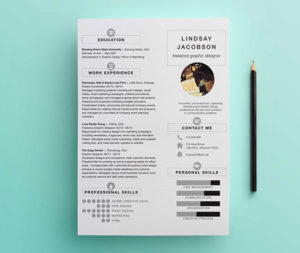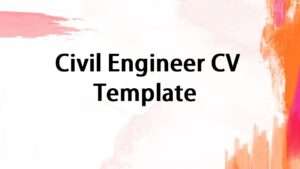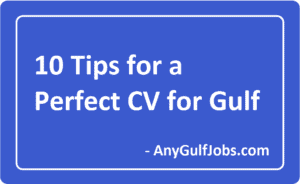Best Fresher Resume Formats with Expert Recruiter Tips and Examples – Best and Simple Fresher Resume Templates, Formats free download in ms word DOC
Click Here to Free Download Resume Templates
Importance of a good resume for a Fresher
Together with the cover letter, the curriculum vitae represents the application’s individual calling card. The applicant’s professional career is presented as concisely as possible. It is therefore important that a good resume shows the most important stages at a glance. In addition to the skills, the resume also contains formal qualifications. In this way, you can make it clear to the HR manager that you, as an applicant, fit into the advertised job profile. This information also allows the HR manager to draw conclusions about the applicant’s strengths and weaknesses.
“A good resume should be visually convincing and attractively designed. A clear structure of the structure is also essential, so that it is presented in a reader-friendly manner. Under no circumstances should this core part of an application be viewed as an annoying compulsory part. The fine-tuning of the resume is well worth the effort.”
A good résumé convinces HR professionals
Why is the résumé so important for a successful application and not the cover letter, work samples or certificate? The answer is surprisingly clear:
“A good resume should be visually convincing and attractively designed. A clear structure of the structure is also essential, so that it is presented in a reader-friendly manner. Under no circumstances should this core part of an application be viewed as an annoying compulsory part. The fine-tuning of the resume is well worth the effort.”
Because a large number of applicants often respond to an advertised position. The curriculum vitae allows a quick overview during the first selection phase. It is the first impression the candidate makes in the company or authority. It often depends on the résumé whether or not the cover letter will be noticed at all afterwards. That already shows the special relevance that a good résumé has for a personal application.
The order in which they were read does not always match the order of the application documents. Accordingly, it is important for the résumé that the information is presented in a clear, concise and concise manner. It should be meaningful enough to give the HR department a positive first impression. Ultimately, a good résumé is not only an advertising medium but also a kind of first work sample.
Also View:- 25 Tips for a Winning Resume
Good résumé: what is important?
While the curriculum vitae used to be written in continuous text, this form of design is no longer an option today. The tabular curriculum vitae, including some mandatory information, is the norm today. The meaning and purpose of the curriculum vitae are therefore that the potential employer can take note of the most important information while reading it skew.
- An important point is therefore the clarity. Because the more applications come in, the more important it is that the HR manager doesn’t have to spend too much time reading individual résumés. He wants to narrow down the circle of interesting candidates as efficiently and quickly as possible. An interestingly designed, suitable and therefore good résumé, which is adapted to both the advertised position and the applicant, will remain in the memory of the other person.
- This is all the more true if the tabular career is underlined with a sympathetic photo.
- In addition, under no circumstances should the information be presented in the résumé that is obviously not relevant to the advertised position. Superfluous content can simply confuse the HR manager. In the worst case, they will no longer want to take the time to further analyze the application and especially the résumé. Additional information should therefore be given carefully.
- In addition, the curriculum vitae should be structured antichronologically. This is especially true for applicants with some work experience. In this case, the HR department is presented with the current professional situation at a glance, with the most recent stages in the foreground. The classic, chronological arrangement is not forbidden, but it is becoming more and more unusual.
Also View:- 15 Amazing tips for a perfect resume
Good Resume: 16 Tips For Success
Due to the large volume of applications, HR departments look at the resume first. You have to decide within a short period of time whether the applicant’s profile basically fits the position or whether the application is to be rejected. Doors can therefore quickly close for applicants through unnecessary mistakes and poor self-presentation. You can prevent this by also following these general tips:
1. Easy to read
A clear structure makes it easier for the reader to quickly find the information they are looking for.
2. Right order
Reverse chronological (also called anti chronological) structure: First name current events, such as current employment or graduation, then go back step by step into the past, such as previous work experience or previous school leaving certificate.
3. Relevant information
Concentration on current work experience relevant to the position. Only briefly mention other stations of the career. The same applies to knowledge, hobbies and interests: Mention what is important for the position – leave out the rest here.
4. Flawlessness
It is essential to avoid spelling mistakes and also to ensure that the document is formally correct.
5. Show success and experience
Mention not only employer and position but also activities, projects and successes. Numbers catch the eye, they create credibility. For example: “Increase in annual online sales by 55 percent.”
6. No false modesty
Not lies, but present skills and successes or put them in the limelight. See your résumé as your ticket to the interview – where you can personally demonstrate what you can do.
7. Red thread
Ideally: A good résumé gives the impression that you have worked towards the position you are now striving for. Of course, this is rarely the case, but applicants should try to show a common thread when describing their career, to give the impression of strict career planning.
8. Matching resume
The content matches the targeted position and career phase: experienced professionals concentrate on their professional career, young professionals on education, interests and characteristics.
Tip: Pay close attention to the requirements of the job posting and highlight skills and experience that make you the right person for the job.
9. Explanation of gaps
Gaps over six months should be explained sensibly and, if possible, concealed cheaply. Call unemployment, for example, “career orientation” or “reorientation”. Sometimes there are also good reasons for a longer break that should definitely be mentioned: parental leave, further training, stay abroad, etc.
10. First professional experience, then education
After the personal data, you should present your professional career. The presentation of study times and school-leaving qualifications can then take place. Exception: Applicants without relevant work experience concentrate on their knowledge and academic achievements.
11. A maximum of two pages
Concentrate on the essentials: delete, abbreviate or summarize unnecessary or irrelevant information. Give relevant information the necessary space. Tips on scope and structure.
12. Appropriate layout
In most cases, a simple, serious, and neatly structured design is the best choice. However, if you apply for a creative profession or a very young company, you can set yourself apart from the other applicants through a special but successful design.
13. Only provide meaningful personal data
Refrain from using personal data that is no longer customary (marital status, occupation of parents, siblings). There are exceptions, but most of the time there is no benefit to this information. Only specify the denomination for ecclesiastical institutions and organizations with the name of the church.
14. Correct application photo
Use a real application photo – preferably made by a photographer specializing in application images and suitable references.
15. Signature
Signing the resume is an important formality. Sign the application on paper with a blue filler, online with a scanned signature.
16. Latest status
Check that all information is up-to-date. Outdated information calls into question your diligence.
Also View:- Frequently Asked Job interview Questions and Answers































